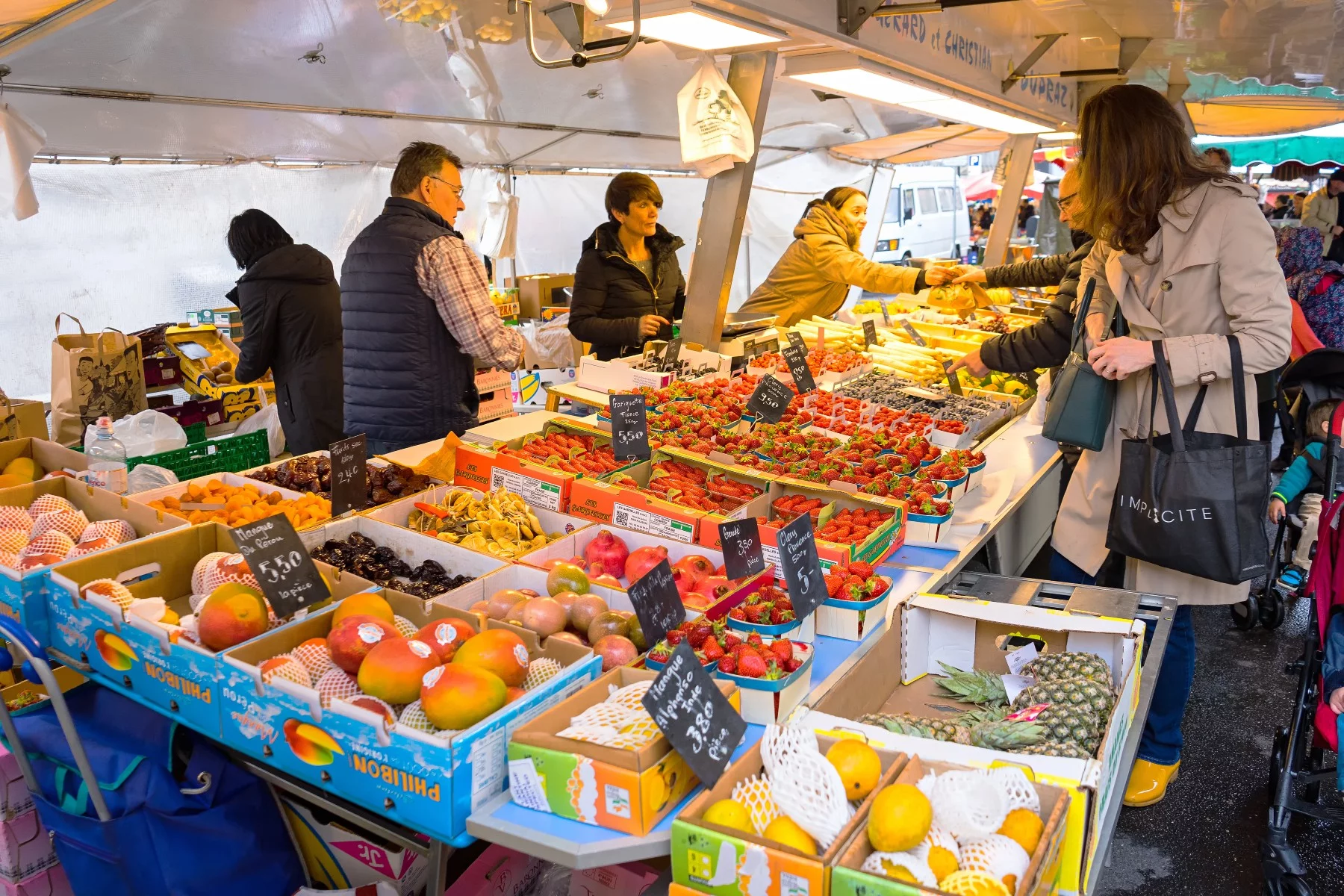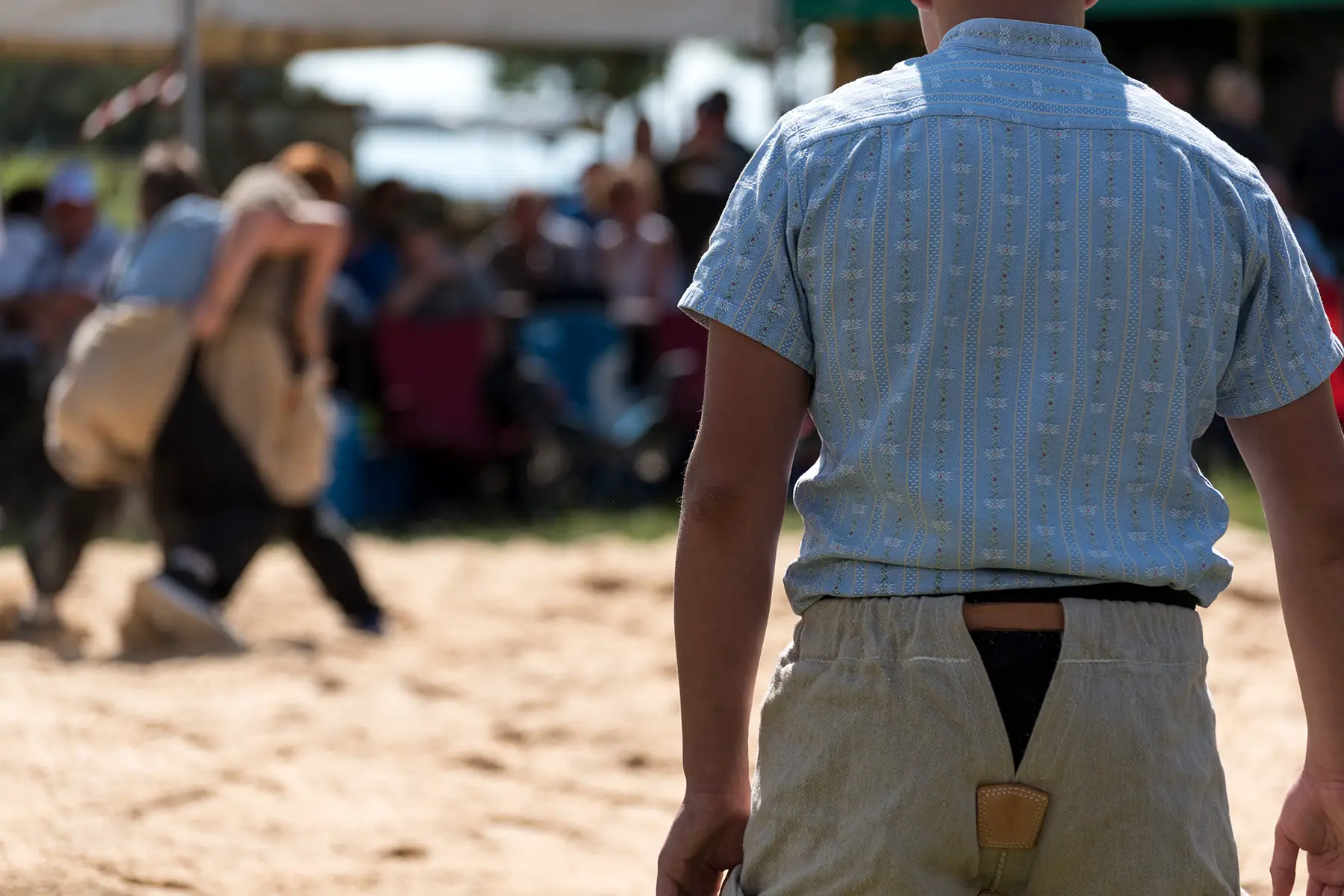Switzerland is renowned for stunning vistas, indulgent chocolate, and its unshakeable neutrality. Lesser known are the customs and habits of the more reserved and polite Swiss people. In this article, we’ll explore the basics of social etiquette in Switzerland, from greetings to personal space to business culture. With its many unspoken social rules, expats moving to Switzerland should be prepared to make some innocent faux pas as they adjust to life in Switzerland.
In this article, we’ll help you get started on that journey by reviewing:
- Swiss culture and society
- Gender roles in Switzerland
- Meeting and greeting people in Switzerland
- Conversation and communication in Switzerland
- Clothing and dress code in Switzerland
- Dining etiquette in Switzerland
- Socializing in Switzerland
- Relationships in Switzerland
- Work and business culture in Switzerland
- Shopping and services in Switzerland
- Celebrations in Switzerland
- Regional variations
- Tips on social etiquette in Switzerland
Swiss culture and society
Switzerland is truly a melting pot of various cultures, with four official languages. These are German (63% of the population), French (23%), Italian (8%), and Romansh (0.5%). Religious freedom is a constitutionally guaranteed right and most Swiss people practice Christianity. Nearly a quarter of the population, though, has no religious affiliation, and less than 7% of the population practice other religions like Islam and Judaism. Social etiquette in Switzerland places a high premium on being tolerant and neutral in all aspects of society.
Swiss people tend to frown upon excessive spending or flashy items, so it can be hard to distinguish which, if any, of your neighbors is a millionaire. That said, Switzerland is home to many immigrants and there is some room for improvement on the part of the Swiss government. Non-European immigrants, in particular, face significant challenges when it comes to becoming citizens and seeking protection from discrimination.
Gender roles in Switzerland
Like much of western Europe, Switzerland claims to value gender equality. In practice, though, things are a little more complicated. For example, until 1985, women couldn’t open a bank account without permission from their husbands. While Switzerland is at or near gender parity within health and education, women still earn less than men in both the public and private sectors. Although things are changing, men still heavily dominate fields such as banking, finance, and information technology.
In fact, because affordable child-care is hard to find, many families find it more economical for one parent, usually the mother, to stay at home with the kids. Expat women can expect to be treated respectfully and fairly. Depending on their field of work, however, they may have to contend with a mostly male work environment.
Meeting and greeting people in Switzerland
Swiss people love their niceties and you should respect that. Anywhere you go, even if it’s to the grocery store you visit weekly, be sure to greet everyone with Salü, Hoi, Grüetzi, or Ciao, depending on what part of the country you’re in. The Swiss consider this polite.

Unsurprisingly, social etiquette in Switzerland expects punctuality, even at parties. Don’t be late if you can help it and, if you’re going to be late, call ahead and inform the people expecting you.
Greetings, visits, and introductions
If you’re meeting someone for the first time, your safest bet is to remain formal. If you’re being introduced, give the person a firm handshake and maintain eye contact. Be sure to refer to them using their surname. To clarify, if the person is German-speaking, use the formal Sie, until they ask you to refer to them with the informal Du. For friends or more informal peers, you may air-kiss three times on the cheek (starting with the right). If you’ve been invited over for dinner or a party, bringing a small gift like (an odd number of) flowers or wine, and something for any children in the house is good social etiquette in Switzerland.
If you’re planning to visit someone’s house, be sure that they’re expecting you, as dropping in is usually reserved for close friends and family. The later it is in the evening, the less likely it is to be appropriate for you to call or drop in. If it’s after 21:00, you should probably just wait until the next day, unless it’s an emergency.
Conversation and communication in Switzerland
Because Switzerland is a melting pot, communication styles vary depending on the culture of the speakers. That said, as a whole, Swiss people tend to be polite, reserved, direct, and a little guarded at first. In work environments, social etiquette in Switzerland is to remain formal until explicitly told otherwise. Because Swiss German is rarely written, Standard German, also known as High German, is used.
Use last names in most spheres as the Swiss reserve first names for close friends and family. Generally, when you’re first getting to know someone, it’s wise to steer clear of overly personal topics as it might make for awkward conversation. Feel free to discuss food, sports, economics, and global current events. Things to avoid include Swiss neutrality in the EU, discussion on the military, and heated topics like immigration.

Body language in Switzerland
Switzerland is a small country with a lot of people. In short, you might feel a bit squeezed at times when it comes to personal space. So, if you’re bumped on the street or end up tucked under someone’s armpit on the train, take it as a cultural difference. Excuse yourself and the unfailingly polite Swiss will almost always say ‘excuse me’ back.
In one-on-one conversations, people usually stand an arms-length apart, sometimes a little less in the Italian Swiss regions. Close friends and family often touch when speaking, but this is not common in workplaces or with acquaintances. Social etiquette in Switzerland is to maintain good posture as it’s considered impolite to slouch or stretch in public. Oh, and tapping your forehead with your index finger? This gesture suggests that someone is crazy and is very insulting.
Clothing and dress code in Switzerland
Dress codes throughout Switzerland will vary based on the environment. As a rule, though, the Swiss appreciate neat and stylish clothes. Consequently, you won’t see too many people in sweatpants or overly casual clothes. Within Swiss business culture, it’s best to err on the side of more formal, conservative items.
Your workplace might accept business casual attire but it’s best to ask so you can get clarity. Events like the theatre or opera are a great excuse to take your most formal gear out for a spin.
Dining etiquette in Switzerland
If someone invites you to dinner, you’ll want to make sure to follow the basic rules of social etiquette in Switzerland. At restaurants, for instance, it’s not considered polite to wave your hand at a server. If you’re in German-speaking Switzerland, address them by Herr Ober (male) and Fräulein (female).

Always wait for the host to make the first toast and make sure to maintain eye contact as you toast. Wait for everyone to have their food in front of them before you start eating and be sure to finish everything on your plate, especially if you’re at someone’s house. Keep your wrists on, and elbows off, the table throughout the meal, holding the fork in your left and the knife in your right hand. To signal that you’re done eating, place the knife and fork together on the plate, in the 5:25 clock position.
Socializing in Switzerland
It can take a while for Swiss people to warm up and get comfortable with new people. Once you’re in the inner circle, though, you’re considered a close friend. One way to befriend Swiss people is to share common interests; Swiss people love hobby clubs, ranging from sports clubs to firefighters clubs to a butchers club!
Another way to get to know people is to invite co-workers to drinks after work. This informal setting (and social lubrication) can help break the ice.
Relationships in Switzerland
Romantic relationships in Switzerland tend to happen at a slower pace. Expect more group or activity-based dates in the beginning, before moving on to one-on-one time. Though it can take longer for things to get serious, once they are, many people value long-term commitment. Because Swiss people are more reserved, you might not get to know the intimate details of a person’s life very quickly. Public displays of affection may also be minimal. That said, once things advance to the bedroom, life gets more satisfying, with Swiss people having 10% more orgasms (German) than the rest of us.
The popularity of marriage is decreasing, with 6.2% fewer marriages in Switzerland in 2019 than in 2018. Once Swiss people get married or start a family, though, they keep their families small and the family unit becomes central to their lives. Same-sex registered partnerships have been legal in Switzerland for over a decade, but voters will decide on same-sex marriage sometime in 2021.

Work and business culture in Switzerland
Business culture in Switzerland is more formal and conservative than in many places, with many companies following a rigid hierarchy. The rules of social etiquette in Switzerland mean that Swiss workers are generally reserved and polite, but direct, with a firm separation between professional and personal life.
So, for example, the Swiss consider it inappropriate for your boss to contact you outside of business hours. Read more about workplace etiquette in our guide to Swiss business culture.
Shopping and services in Switzerland
Shopping in Switzerland looks a lot like shopping in much of Europe, except for a few exceptions. Firstly, be sure to say hello and goodbye to the shopkeeper. And secondly, don’t expect an orderly queue.

As polite as they are, Swiss people do not value orderly lines. That said, don’t be insulted if someone randomly steps ahead of you in line at the supermarket.
Celebrations in Switzerland
Celebrations and traditions in Switzerland usually happen around birthdays (carrot cake, anyone?) and religious holidays such as Christmas or Easter. Birthday parties usually bring together a child’s close friends and family and involve games, gifts, and, as you can imagine, chocolate. Adult birthday parties are much the same, though likely with fewer games and gifts.
The Swiss celebrate Santa Day on 6 December. That’s when Samichlaus and his buddy Schmutzli walk around with their donkey visiting children and bringing small fruits, nuts, and cookies in exchange for poems recited by each child. Similar to neighboring European countries, Christmas markets are open in most municipalities in the weeks leading up to Christmas in Switzerland.
Gifts in Switzerland
If someone hosts you in their home, it’s good social etiquette in Switzerland to bring a small gift. These may include flowers (avoid red roses unless the relationship is romantic), chocolates, or wine. If there are children in the house, be sure to bring something small for them too. Avoid giving anything sharp, like scissors or knives, as this gesture could symbolize cutting ties. It’s not very common to give gifts in the workplace but, if you do, give the gift after any business or negotiations have already taken place.

Whether meeting someone for business or pleasure, though, don’t give extravagant or very expensive gifts as this could be embarrassing for the recipient.
Regional variations
Because Switzerland is multilingual and multicultural it is hard to generalize about particular regions. That said, people in German-speaking Switzerland are said to be a little more serious and reserved than people in other parts of the country.
For a country as small as Switzerland, it often surprises foreigners how different dialects of Swiss German can be from village to village!
Tips on social etiquette in Switzerland
Making mistakes in a new country is normal and people usually appreciate you taking the effort. Here are some handy tips on social etiquette in Switzerland to keep in mind:
- Respect other people’s time. Or, at least respect their need for punctuality.
- Don’t litter. Really, it’s a big faux pas here.
- Greet everyone, always. Even if there are 16 fellow hikers on the narrow path, give each one some eye contact and a brief hello.
- If you’re invited to a party, be sure to leave before midnight so the host has some time to clean up.
- Avoid chewing gum in public, it’s considered impolite.
- Brush up on your fondue etiquette.









